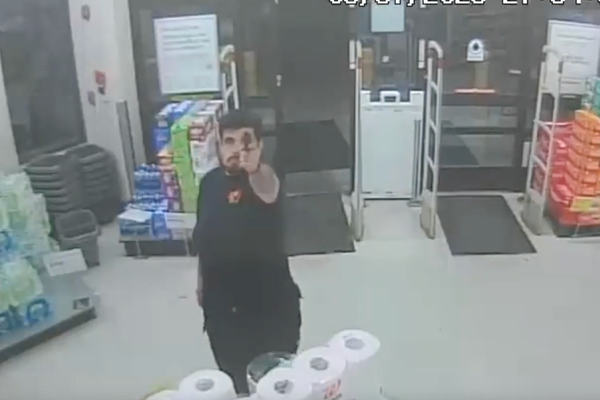
Peloton instructor Leanne Hainsby revealed she’s been battling breast cancer for the last six months in a recent Instagram post with a picture of her undergoing treatment. The London-based cycling instructor shared that she'd discovered a lump two days before her best friend’s funeral and went to get it checked out that morning; however, the doctor said “everything was okay.” But she got a second opinion and underwent multiple scans and appointments before being diagnosed with breast cancer in August 2022.
“Where possible, I have continued to show up as ‘normal,’ but my reality most of the time has looked very different,” she wrote. “In terms of my treatment and navigating my way through up until this point, it has been something I’ve kept very private. As a Peloton instructor, a huge part of my role is all about the members, and despite my diagnosis, that has always mattered to me hugely. My classes have given me a focus, and some sparkle in an otherwise incredibly tough time, so Thank You to the members who had no idea the amount of joy they were bringing to me every day.”
Hainsby, 35, also gave an update on her treatment, saying that she’s completed 12 weeks of chemotherapy thus far as well as surgery. Next up, she says, she will have her Port-a-cath surgically removed, followed by two weeks of radiotherapy. Hainsby and her husband, fellow Peloton instructor Ben Alldis, also did a round of IVF ahead of her chemotherapy.
“We weren’t mentally prepared,” she wrote, “but we got it done and we’re so grateful.”
Preventive care is crucial when it comes to detecting diseases such as breast cancer. According to the American College of Radiology, mammograms have reduced breast cancer mortality by 40% since 1990.
“Mammograms are very important in detecting breast cancer at its earliest stages,” Dr. Toma Omofoye, a breast radiologist and associate professor in the department of breast imaging at the University of Texas MD Anderson Cancer Center in Houston, told Fortune in a previous interview. “Breast cancer that is detected in mammography before it can be felt typically is a disease that is much easier to treat. It’s at a lower stage, has a less intensive course of treatment, or a much shorter course of treatment that may not need to have the whole gamut of surgery, radiation, and chemotherapy.”
The National Comprehensive Cancer Network advises that people with an average risk of developing breast cancer should schedule annual mammograms beginning at age 40. But if you have any number of risk factors, including family history, previous breast biopsies, atypical cells and/or dense breast tissue, you may need to get a mammogram sooner.
Experts advise women begin talking to their doctor in their twenties to assess their personal risk of developing breast cancer. Monthly breast self-exams are also encouraged to develop a baseline of what’s normal for your breasts and track any changes your doctor should be made aware of.
“Nobody wants to be sat in a room and told they have cancer, and yet I’ve always felt [like] one of the lucky ones. I am one of the lucky ones. Lucky to be diagnosed early, lucky to be moving fast through treatment, lucky to know I WILL BE OK,” Hainsby wrote. “Your life outlook becomes so very different in times like this. I think anyone who has had to ask ‘am I going to die?’ to a medical professional would probably say the same. But then you fight. You gain a strength you never knew you had, and you keep pushing forward. Strong, as healthy as possible, and empowered.”







